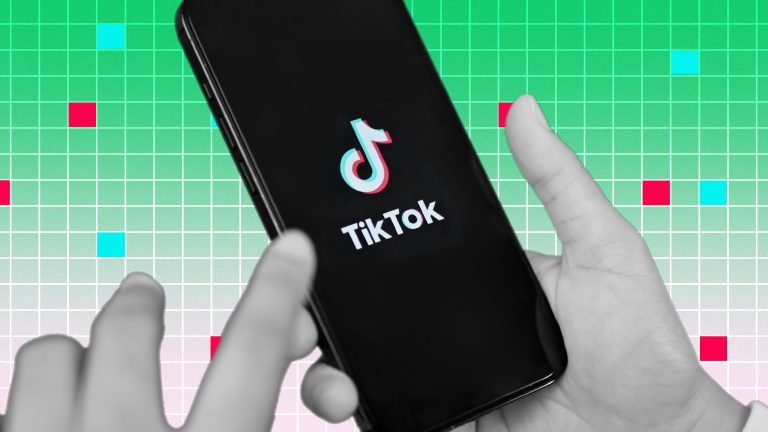When I launched my podcast last year, I found myself contending with the same questions that all audio content creators must solve: How do you monetize? How do you understand your audience? Making money as a small podcast creator isn’t easy. Unlike YouTube or Twitch, where it’s relatively simple to earn advertising revenue, there is not a clear path to earn revenue from listeners on most podcasting apps.
Podcast apps also don’t provide enough granular information about your audience. Sure, I could see the gender and age range of my listeners and the average time they spent on each episode, but reading their thoughts and connecting with them directly was almost impossible. To cope, many podcast creators in the U.S. set up Patreon pages, Substack newsletters, Discord channels or Facebook groups to bypass this difficulty and reach their fans.
A better variety of options for podcast creators already exists in China, where apps like Ximalaya, Lizhi, Qingting FM, and Xiaoyuzhou FM allow for more audience participation than their Western counterparts. As a creator, I wish that Spotify and Apple Podcasts would learn from them.
The Chinese podcasting landscape emerged, in part, because the country’s technology and internet ecosystems are separate from the rest of the world. Spotify is blocked in China. Apple Podcasts are available on iPhones, but there are strict limitations, and the content is filtered and censored. Even the ability to browse by category is unavailable.
Because it evolved independently, the podcast ecosystem in China is fundamentally different. As podcast critic and the founder of Hot Pod Nicholas Quah has argued, it’s difficult to compare the U.S. and Chinese podcast markets. “The proper comparison would be to the U.S. podcast industry grouped together with the wider universe of audiobooks, meditation apps, and, at some future point, Spotify,” he wrote in Nieman Lab. The category known as “podcasts” in English translates to “播客”, literally meaning broadcasted blogs.
Different apps have their own personalities and audiences. Kou Aizhe, the creator and producer of Story FM, one of China’s most popular podcasts, told me that Ximalaya is the most broadly popular platform, while NetEase has a relatively younger millennial audience, and Apple Podcast users are likely of higher levels of income and education. Xiaoyuzhou FM is podcast-centered, and caters to creators.
When I first downloaded Chinese podcast apps, I was shocked at how interactive they were. Instead of serving as just search and recommendation engines, they also had features that allowed listeners to take notes and leave comments on their favorite audio content. On Ximalaya, listeners can create and join listening circles or discussion channels, or give gifts to support their favorite shows. Creators can livestream, monetize via advertising programs, and provide voiceover services — all within one app.

What if you’re kicked off?
One hazard for podcast creators in China, though, is censorship. Any content creator in the country — whether their medium is film, audio, literature, or blogging on Weibo — is aware that their work could be removed at any time.
“Content creators and these platforms always have this inevitable tension, because the platform owns the traffic and subscribers,” said Afra Wang, the creator of Loud Murmurs, one of the only all-female talk shows in China. That means when an app removes a show’s content, the podcast creators lose their fan base.
After hosting her show on Ximalaya for two years, Wang woke up one day in 2019 to find all of Loud Murmurs’ episodes had disappeared from the platform and she could no longer access her account. She was never given a clear reason why.
Wang said it was “painful” to suddenly lose thousands of subscribers and comments, direct fan interactions, and all traces of her podcast on Ximalaya. Afterward, she became an advocate of podcast creators sharing their content through an RSS feed, a format used less frequently in China. Several RSS readers have also recently been removed from Chinese app stores. Thankfully, the Loud Murmurs team had registered one before their content was deplatformed, meaning that past episodes were still available on the RSS feed.
China’s podcasting world contains some of the most innovative and human-centered storytelling that news media outlets may not often report. Qingbin, a producer of the LGBTQI-focused podcast 无所不JI (WusuobuJI), told me that for China’s queer populations, “storytelling becomes a source of strength and reflects the real life conditions and experiences of these people.” In 2020, WusuobuJI covered medicine delivery for HIV-positive individuals in Wuhan during the Covid-19 pandemic.
Wang still believes the podcast industry is the “most progressive” and “healthy” content space in China, perhaps because of its grassroots nature, or due to the fact that many hosts are former journalists with training in investigative methods, anthropology, and sociology. But she worries that creators are living on “stolen time,” and that more regulation from authorities could be coming soon.

The Comment Section
The most notable difference between Chinese podcasting apps and competitors like Spotify and Apple Podcasts is that they allow listeners to leave individualized comments on each episode, rather than just reviews of an entire show.
Kou said he receives thousands of comments on every weekly episode, important feedback that he really values. He believes that storytelling can change people’s minds, and having a comment section creates an environment where discussions can thrive.
For example, on a recent episode about the Chinese government’s crackdown on private tutoring companies, Xiaoyuzhou FM listeners sparked a discussion in the comments about the tradeoffs of regulating the private tuition sector.
As a creator, I think comment sections could be extremely useful, because they allow fans to naturally have focused discussions about each episode. I could also then use these comments to measure the impact of each episode, and as a form of feedback to inform future episode content.
Wang said she makes sure to respond to comments on her podcast episodes whenever possible. The back-and-forth dynamic between host and listener creates a sense of kinship.
Wang told me that comments provide an additional reason for users to spend more time on a podcasting app. The companies “are trying to trap you into their own universe,” she said.
Podcast creators in the U.S. can use sites like Patreon, Substack, and Discord to connect with their fans, but that requires migrating podcasts to an entirely new platform. Joining these discussions often requires paying a fee or signing up for a recurring subscription, which may be limiting.
U.S. platforms have recently taken steps to help podcast creators connect more with their fans, but so far, their efforts are feeble. Earlier this year, Apple announced a premium podcast subscription program for creators to earn money by offering exclusive content (Apple takes a 30% cut). Soon after, Spotify, which in 2019 bought out the podcast distributor platform Anchor, launched its own paid podcast subscription program.
Because Apple Podcasts and Spotify are already the dominant players in the audio industry, they no longer need to innovate. That means podcast creators like me are forced to chase after subscriber lists and emails so that we can engage with our fan base directly. It would be so much easier if all of these functions were in one place — like they already are on Chinese podcasting apps.



